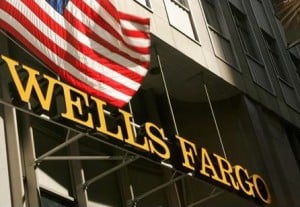
source: http://newsone.com
See update below
For the past three Tuesday mornings, DDoS (distributed denial of service) attacks have caused online outages at major U.S. banks, including Bank of America, Chase, Wells Fargo, U.S. Bank and PNC. The attacks end by Friday afternoons. A DDoS attack causes the site or service to be temporarily unavailable by flooding the targeted website with traffic until the site's servers are overloaded. Yesterday, customers started reporting on SiteDown that they were having trouble accessing the Wells Fargo and Bank of America websites.
The banks that experienced outages have confirmed that no sensitive financial information or personally identifiable information about customers was exposed, supposedly because the attacks were motivated by politics, not fraud.
A hacktivist group called “Cyber fighters of Izz ad-din Al qassam” are taking credit for the attacks, but experts say that this group has not historically been affiliated with hacktivism. The variety and scale of the attacks have experts doubting that the group was involved, citing the massive bandwidth used in the attacks.
Collaboration among banking institutions, online-banking platform providers, other vendors, industry associations and the government, has been stronger than ever because of these attacks, reports BankInfoSecurity. "There definitely seems to be more of a community effort for the first time here to address this issue. And now we are seeing a real-life situation where we've had to pull together and be prepared," says a security and fraud executive at a $4 billion banking institution in the U.S. who wishes to remain unidentified.
Early warnings about attacks aimed at these institutions were issued by the FBI and the FS-ISAC benefiting the entire industry. However, there is criticism that banks have not done enough to communicate with consumers about what is causing the outages. They might be legally barred from releasing details, however, since an ongoing investigation is in progress. The best you can expect is a "Sorry for the inconvenience."
At this point it doesn't appear that the DDoS attacks put your money in danger besides being unable to access your account for periods of time. Once you can access your bank's website, check the security of your account. For those of you wanting to take precautions when conducting online financial transactions, Avast offers extra protection to keep your transactions private. Avast! SafeZone (available in avast! Pro Antivirus and avast! Internet Security) creates full desktop isolation so that other applications don’t see what’s happening – perfect for secure banking or online shopping– and leaves no traces once it’s closed. Check out the Deal of the Week for savings on our premium protection.
Update, October 12: Regions Bank was attacked today and Capital One and SunTrust were hit earlier this week. Izz ad-din Al qassam, the group taking credit for the attacks, warned about them in advance, saying it expects to spend the weekend developing plans for more attacks next week. The group claim the reason behind all this mischief is because of a YouTube movie trailer believed by the group to be anti-Islam. If the group repeats their established pattern, banks could expect more attacks next Tuesday, Oct. 16. No fraud activity has been reported by the banks.